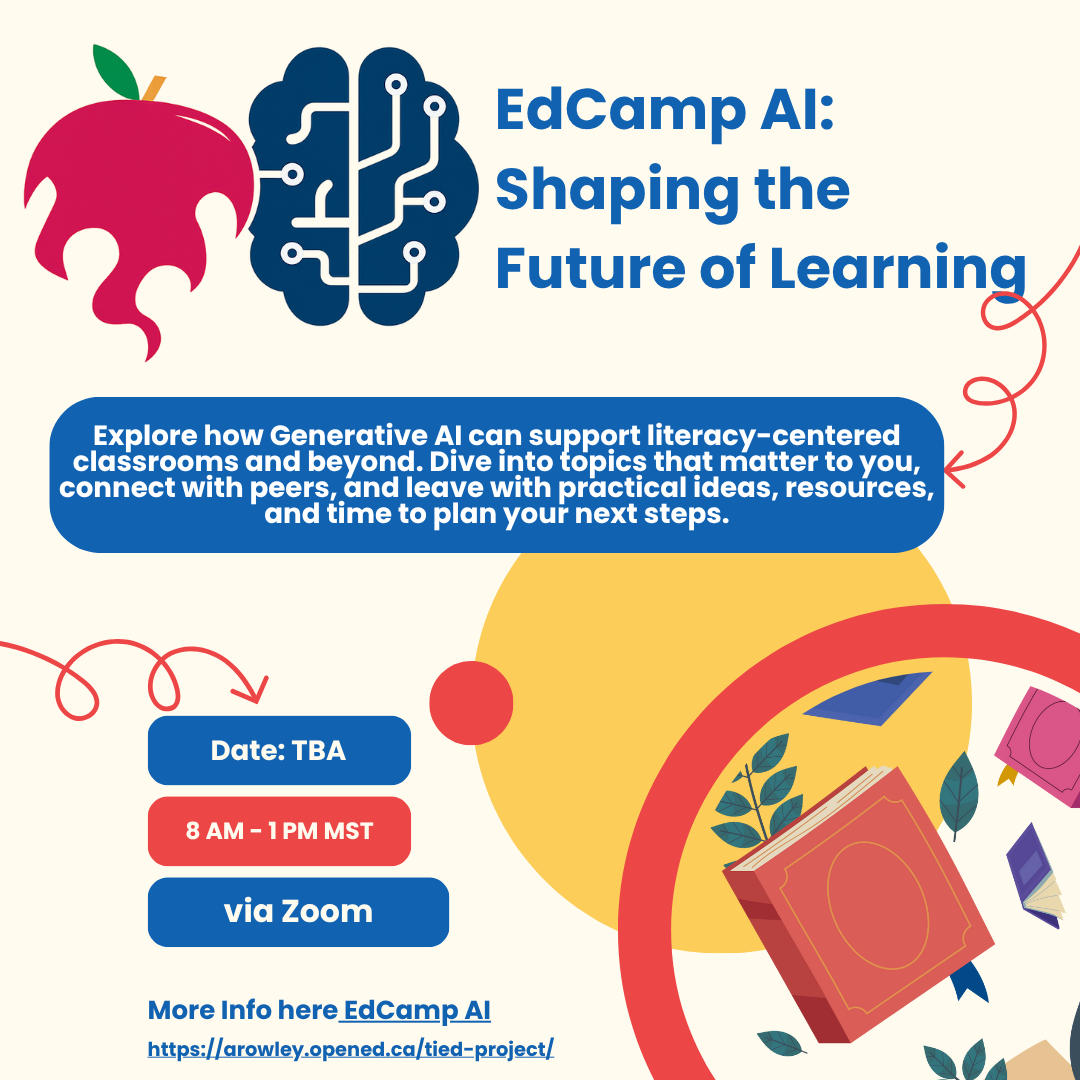EdCamp Project

What is an EdCamp?
Watch the video from Digital Promise below to find out for yourself!
An EdCamp is an informal, participant-led professional learning event where educators (and students!) set the agenda. Instead of pre-scheduled presentations, sessions are built around the interests and questions of the people in the room. It’s all about collaboration, conversation, and sharing real-world strategies and experiences. Whether you come to listen, ask questions, or lead a discussion, EdCamp is a low-pressure, high-energy way to learn from each other.
Mission Statement
EdCamp: AI & Us – Shaping the Future of Learning is a collaborative, participant-driven event where educators and students come together to explore the evolving role of artificial intelligence in education. Through open conversation and shared experiences, we’ll dive into how AI is being used in classrooms, what impacts it’s having on teaching and learning, and how we can responsibly harness its potential. Whether you’re experimenting with AI tools or just starting to ask questions, this is a space to learn, connect, and grow together. With continually evolving technology, it is important for educators to “aim for the educational system to not simply trail behind the real world but proactively guide society’s development, understanding the relationship between GenAI and future learning becomes crucial” (Chen, 2023).

Pre-EdCamp Activities
Organizing Committee – Ashley Rowley

Ashley is a middle and high school Humanities teacher and a graduate student in the Master of Educational Technology program at the University of Victoria. Born and raised in Manitoba, she began teaching in 2007 and now calls Alberta home. Her interest in educational technology started back in 2011 with a simple goal: make learning more meaningful and engaging for her students. That curiosity has followed her through different schools, curricula, and teaching contexts.
Lately, Ashley has been diving into the world of generative AI, especially since the release of ChatGPT in 2022. It sparked big questions—and big possibilities—for how classrooms are changing. She’s especially
interested in how educators can help students build the skills they need to work alongside AI, not just with it. For Ashley, it’s all about finding ways to keep learning relevant, human, and future-focused.
Contact Info: personalgmail.com
Diversity, Equity, and Inclusion Disclaimer
This virtual EdCamp is committed to fostering a safe, inclusive, and respectful online space for all participants. We value and celebrate diversity in all its forms and strive to ensure equitable access and representation. We ask all attendees to engage with empathy, kindness, and curiosity. Discrimination, harassment, or exclusionary behaviour—whether in chat, discussion, or breakout rooms—will not be tolerated. Let’s work together to create a welcoming digital environment where every voice is valued and heard.
Planning resources
All planning resources, like the handbooks and checklists, have been adapted from Digital Promise: EdCamp Community.
Citations
Chen, S.-Y. (2023). Generative AI, Learning And New Literacies. Journal of Educational Technology Development and Exchange (JETDE), 16(2), 1–19. https://doi.org/10.18785/jetde.1602.01
Digital Promise. (2024). Edcamp Community. Digital Promise. https://digitalpromise.org/edcamp/
Recent Comments